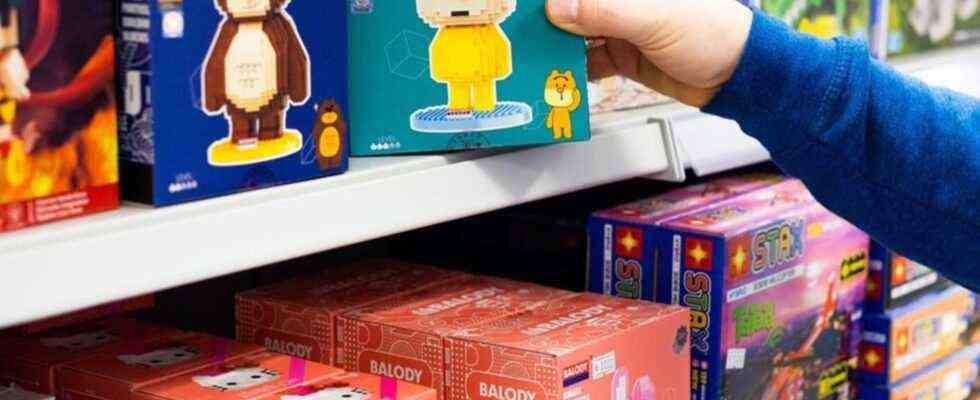Daily need
The 2G rule does not apply to toy shops in Bavaria
In Bavaria, the 2G rule for the toy trade does not apply. Photo: Moritz Frankenberg / dpa
© dpa-infocom GmbH
What is daily need and what is not – and when do 2G rules apply? A court in Bavaria now decides: Toys are part of it.
Toy shops in Bavaria, like bookstores or flower shops, serve to cover daily needs and are therefore not subject to the 2G rule. The Bavarian Administrative Court decided that last Friday.
There are no legal remedies against the decision. At the beginning of December, the state government decreed that only those who had been vaccinated and those who had recovered had access to the Bavarian retail trade. Shops “covering daily needs” were excluded. As the Administrative Court announced on Monday, the owner of a toy store had filed an urgent application against this. The judges rejected the urgent motion as inadmissible – but only because the plaintiff was not affected.
Because the state government had listed as exceptions to the 2G rule on the one hand shops with clearly necessary basic supplies such as grocery stores and pharmacies – but on the other hand also bookstores and flower shops, garden markets and Christmas tree sales, which clearly do not belong to the basic supplies required on a daily basis. For children, however, toy shops – especially during the Christmas season – have at least the same importance as books, cut flowers and garden tools for adults, the judges have now declared. How important and urgent a daily requirement has to be so that the business is not subject to the 2G regulation cannot be inferred from the text of the regulation or the justification.
The Federal Association of Toy Retailers (BVS) in Cologne welcomed the decision and called for an end to 2G in retail throughout Germany. Other toy retailers in other federal states are now considering filing a lawsuit. 2G and lockdowns in retail are “a wrong way,” said BVS managing director Steffen Kahnt. For purely symbolic reasons, dealers would be disadvantaged during their peak sales period. For example, toy retailers normally generate 40 percent of their annual sales during the Christmas business.

